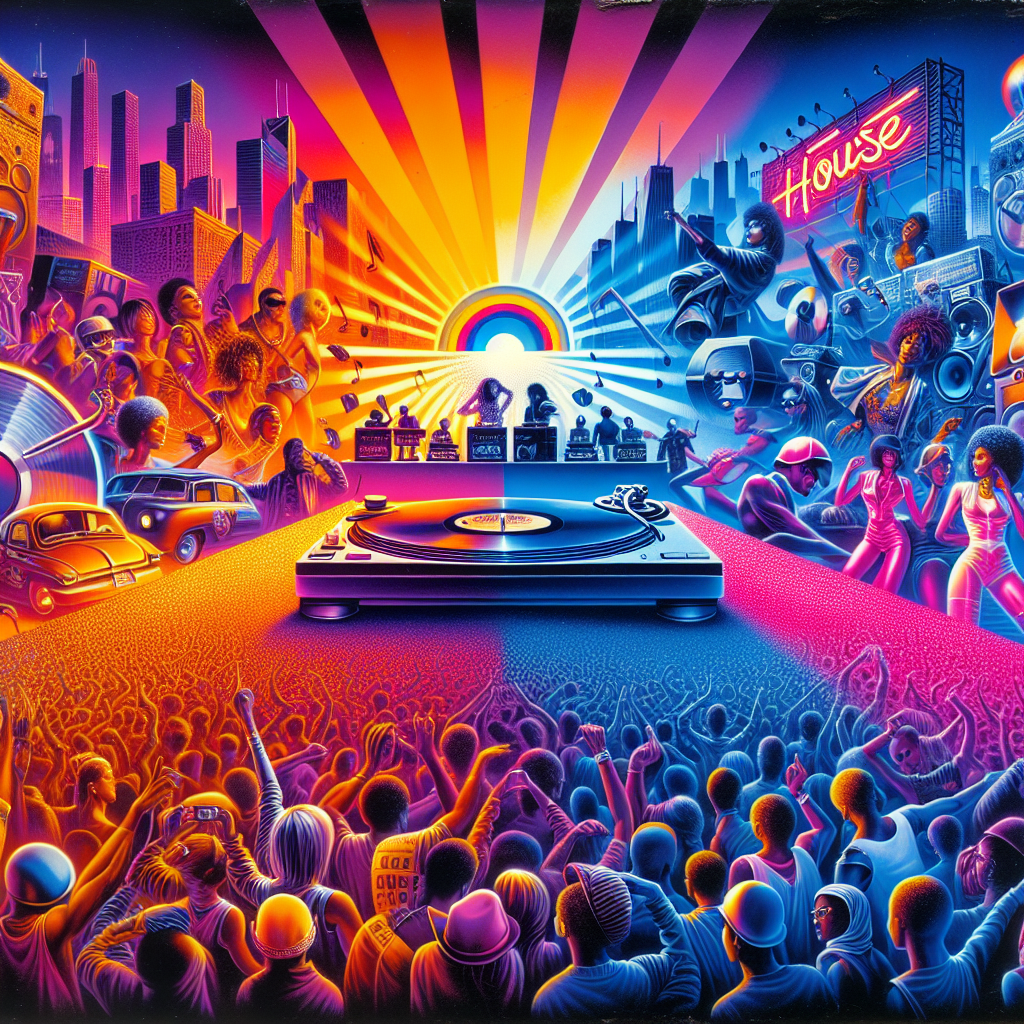Brace yourselves, because Mr. KanHey is here to disrupt the status quo—and this time, we’re diving deep into the neon-lit, sweat-soaked roots of a cultural revolution that’s still making booties bounce in Berlin and bodies break out in Beyoncé-led bliss. Let me say this loud, clear, and with a speaker stack taller than your ego: There would be no house music without Chicago—and without house music, the dancefloor is just a sad carpet with flashing lights.
Let’s rewind the tape. Picture it: Late ’70s to early ’80s, Chicago—city of deep dish and deeper basslines. Out of the ashes of disco’s supposed death rose a sound built in black queer spaces, spun on turntables like sacred relics, and fueled by drum machines that defied commercial polish. Frankie Knuckles, the prophet of pulsing rhythms, wasn’t just DJing—he was baptizing souls in a bassline church called The Warehouse. That’s where house happened. That’s where culture cracked open.
And then… BOOM. Like a sonic Molotov cocktail, house music ignited a global inferno. From Detroit’s stripped-down techno twins to Paris’s Stardust synths, and finally into the bloodstream of pop juggernauts—this four-on-the-floor beat refused to be colonized by categories or confined to ’80s nostalgia.
Fast forward to now. House is no longer lurking in the underground; it’s strutting its stilettos across main stages, shoving chart-toppers to the curb. Drake’s “Massive”—produced by DJ Gordo, descended from the same vinyl veins as early Chicago warriors—isn’t just a beat. It’s a gospel soaked in sweat and longing. That track didn’t beg for a place on the playlist—it hijacked the aux cord and drove us all to the dancefloor.
Then came the Renaissance—not metaphorical, but literal. Beyoncé didn’t just borrow house music, she paid homage on her album, Renaissance, like a queen reviving ancestral magic with frosted vocals and monstrous grooves. Tracks like “Break My Soul” didn’t revive house—they reminded us it never flatlined. House has always been the heartbeat of the people, keeping pace with every era that tried to silence voices of color and compress passion into formulaic pop.
Let’s get provocative—because you know I live for it. Why does house persist while other genres expire like stale milk? Because house was never just music. It was liberation in 4/4 time. It was revolution subverting inside bass bins. It wasn’t created for the masses—it created the masses. You don’t just hear house. You surrender to it.
And now, in a twistedly poetic loop, house is back on its original continent—North America—thriving in the same chaos that birthed it. But this time, it’s armed with global flavor, queer defiance, and a refusal to fade into the background noise of algorithmic playlists.
So the next time you lose yourself on the dancefloor, don’t thank EDM. Thank Chicago. Thank the pioneers who bled into their decks and built cathedrals with mixers and MPCs. If Drake and Bey are the icons of now, Frankie and Phuture are the eternal ancestors. Respect the lineage.
Because darling, without house music, we wouldn’t just be dancing less. We’d be feeling less. And Mr. KanHey don’t do numb.
Dare to be different or fade into oblivion.
– Mr. KanHey







